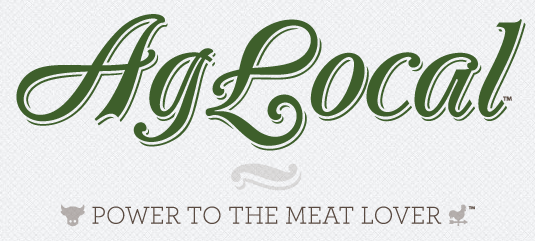AgLocal, a startup that’s using the power of the Internet to disrupt how animal farmers connect with meat buyers and distributors, has just scored $1 million in funding from Andreessen Horowitz, Midwest VC firm OpenAir Equity Partners and other angels including John Fohr (Partner at Lux Capital), Thad Langford (former CEO of Zave Networks), Dan Carroll (founder of Leap2 and AdPredictive), Andy O’Hara (Partner at Tradebot Ventures), and Matt Watson (Founder of Vin Solutions and Stackify).
The additional funding will help the company build out its technology platform, hire additional engineers, and establish relationships with potential partners in advance of its late summer/fall launch planned for later this year.
Co-founder Naithan Jones said he was inspired to create the company not necessarily because of green concerns, like the impact that large-scale, mechanized farming has on the environment, but because he saw the potential for consumer empowerment. Farmers’ markets help people buy quality produce at a good price, but, he says, “I like meat.”
He thought to himself: “I don’t think I’m getting the best price for the best product, and that’s because of the system that controls it. So, how do I break that and disrupt that by using the web?” Those ideas later became AgLocal.
However, Jones quickly realized that the consumer-focused approach which would allow everyday folks to buy directly from farms wouldn’t work. It just wasn’t scalable. “People really don’t buy that way, even when they say they will,” he says. “They like to buy their meat in trusted places where it’s stored cold – grocery stores and butcher shops.” The other problem was that farms don’t do business that way either – they don’t deliver their meat throughout the city because they simply don’t have time. Getting into the consumer market would mean turning into a supply chain company, Jones realized, and he didn’t want that.
Instead, he looked to who were the biggest buyers of meats, and decided to enable them. Here in the U.S., that’s the distributor businesses which sells to the retailers. There are a number of these businesses which are independent (meaning not under contract from larger distributors like Monsanto or Cargill), but still fairly good-sized companies. Through AgLocal, they’ll be able to connect with and buy directly from the farmers. And in the end, AgLocal could still offer consumers a mobile solution that lets them know where in their city they can find the locally raised, sustainable meats.
“Sustainable,” although not the original inspiration for the business, is a key part of AgLocal’s potential. Explains Jones, most farmers have the ability to scale their farm up and produce 4 times what they do now, but they choose not to. The problem is that if they do, in order to maintain their margins, their only buyer is a Monsanto or Cargill, for example. And then they would only get a small piece of margin for three to four times the work. Their only other options for selling off additional product would be to take it to farmers’ markets or go door-to-door, selling to local restaurants. But farmers don’t have time to sell, says Jones, they’re operators.
“98% [of U.S. farms] are family and independent farms,” says Jones. However, they have no choice but to work with the large mechanized farms when they want to scale. “But what’s funny is that the market says that animal – that cow, that chicken, that pig – is worth more to the market before it goes through their process. But they have no way of meeting the market and quantifying that demand. That’s why we’re building this.”
Besides the impact to farmers’ margins, mechanized farming contributes to a whole host of problems: pollution, what they do to the meat we consume because of overcrowding issues and the antibiotics pumped into the animals, and, ultimately, what they do to our healthcare costs because of the meat we consume. But this is what scaling a farm looks like today, unfortunately.
Currently a team of seven, AgLocal is hiring engineers who will work out of the Valley, while its base of operations will be in Kansas City. The service will launch sometime later this summer or early fall across the U.S.
